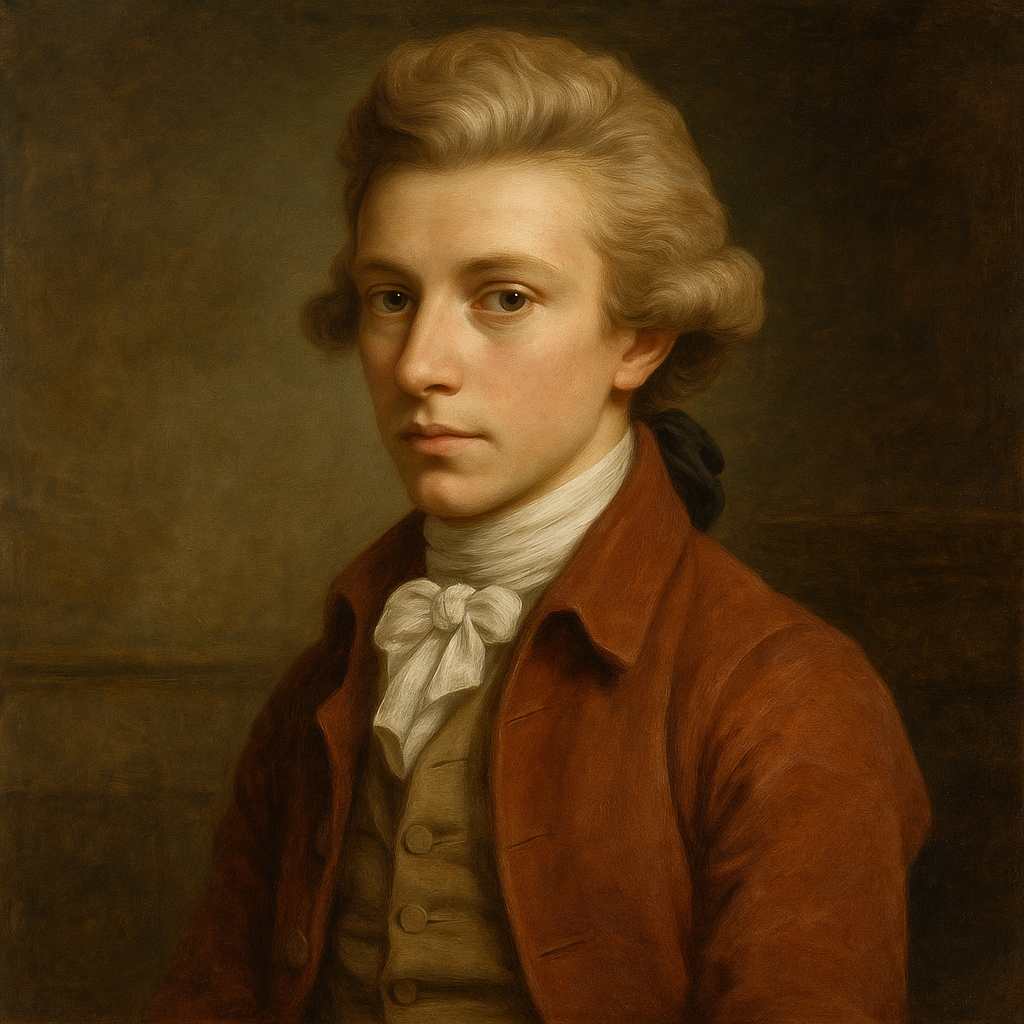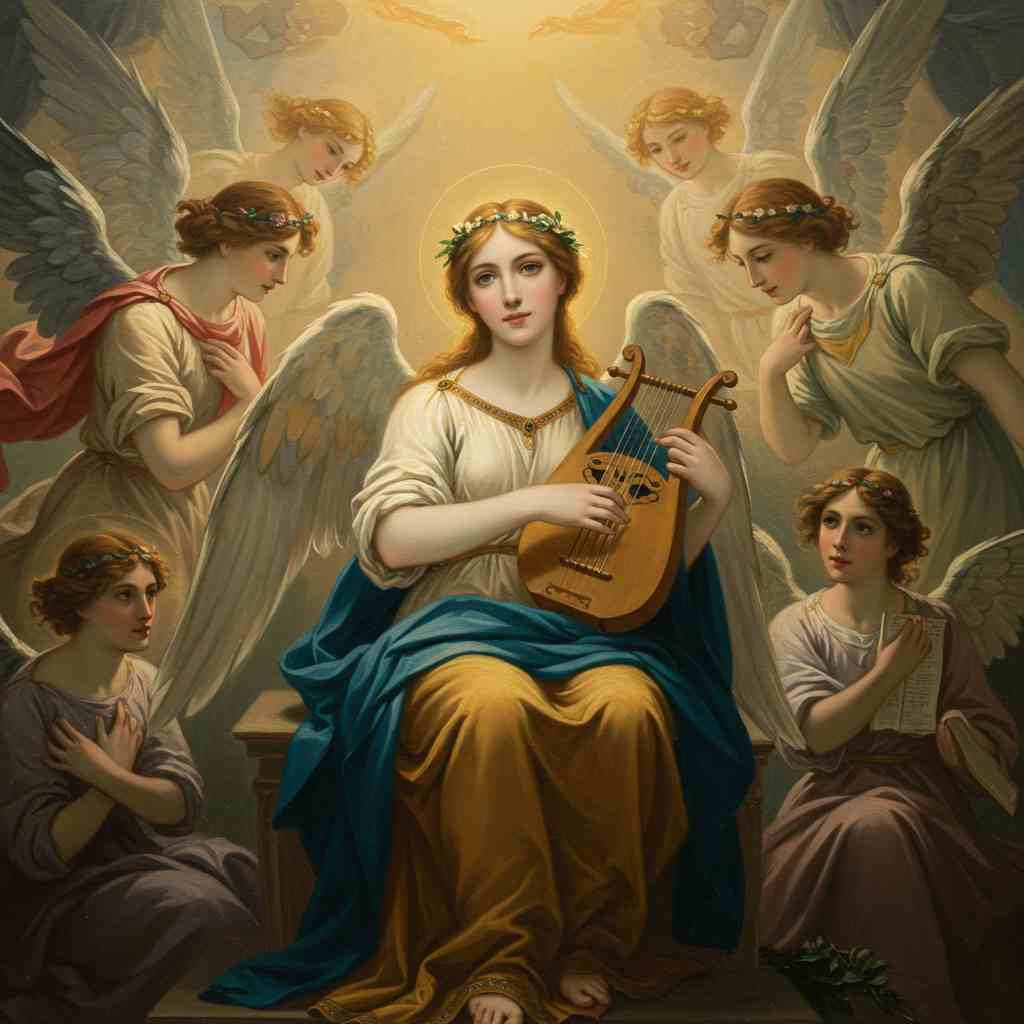3 Poems by Thomas Chatterton
1752 - 1770
Thomas Chatterton Biography
Thomas Chatterton, a figure who continues to captivate the imagination of literary scholars and poetry enthusiasts alike, lived a tragically brief yet remarkably influential life in 18th-century England. Born on November 20, 1752, in Bristol, Chatterton emerged as a prodigy whose talent and ambition were matched only by the controversy and mystery that surrounded his work and untimely death.
The son of a schoolmaster who died before his birth, Chatterton was raised in relative poverty by his mother and sister. From an early age, he displayed an extraordinary aptitude for language and literature, teaching himself to read from old musical folios and black-letter Bible. His precocious nature and voracious appetite for knowledge set him apart from his peers, leading him to spend countless hours in solitary study and composition.
Chatterton's most famous and contentious works were a series of poems he claimed to have discovered, written by a 15th-century monk named Thomas Rowley. These "Rowley poems," as they came to be known, were masterful imitations of medieval verse, complete with archaic language and historical references that seemed to authenticate their origin. The young poet's ability to craft such convincing forgeries speaks not only to his technical skill but also to his deep understanding of literary history and style.
The Rowley poems gained Chatterton some local notoriety in Bristol, where he attempted to pass them off as genuine historical artifacts. His motivations for this deception were complex, likely stemming from a combination of artistic ambition, financial need, and a desire for recognition that his own name and circumstances could not easily afford him. The poems' themes of chivalry, romance, and medieval pageantry resonated with the growing Romantic movement, anticipating the work of later poets like Coleridge and Keats.
As Chatterton's ambitions grew, so did his frustration with the limitations of provincial life in Bristol. In April 1770, at the age of 17, he made the bold decision to move to London, hoping to make his fortune as a writer. The capital, however, proved to be a harsh and unforgiving environment for the young poet. Despite his prodigious output, which included political essays, satires, and lyric poetry, Chatterton struggled to find patrons or publishers willing to support his work.
The London period of Chatterton's life, though brief, was intensely productive. He wrote under various pseudonyms, adapting his style to suit the tastes of different publications and audiences. His versatility as a writer was remarkable, encompassing everything from scathing political commentary to tender love lyrics. Yet, despite his efforts, financial success and recognition remained elusive.
As his situation in London grew increasingly desperate, Chatterton's work took on a darker tone. His poem "Resignation," written shortly before his death, reflects a profound sense of disillusionment and despair. On August 24, 1770, just months after arriving in London and mere days before his 18th birthday, Thomas Chatterton was found dead in his attic room. The official cause was determined to be arsenic poisoning, widely believed to be self-administered.
Chatterton's death sent shockwaves through literary circles and has since become the subject of much speculation and romanticization. The image of the young genius, destroyed by a world unable to appreciate his talent, became a powerful symbol for the Romantic poets who followed. Keats dedicated "Endymion" to Chatterton's memory, while Wordsworth hailed him as "the marvelous Boy, The sleepless Soul that perished in his pride."
The controversy surrounding the Rowley poems continued long after Chatterton's death, with debates about their authenticity raging well into the 19th century. Today, while their true authorship is no longer in question, the poems are recognized as remarkable achievements in their own right, showcasing Chatterton's extraordinary ability to inhabit and recreate the voice of a past era.
Chatterton's influence extends far beyond the realm of poetry. His life story has inspired numerous works of art, literature, and music, from Henry Wallis's famous painting "The Death of Chatterton" to Peter Ackroyd's novel "Chatterton." He has become a symbol of youthful genius cut short, of the struggles faced by artists in a commercial world, and of the complex relationship between authenticity and artifice in art.
Scholars continue to debate the full extent of Chatterton's legacy. Some see in his work the seeds of the Romantic movement, with its emphasis on imagination, emotion, and the power of the individual creator. Others point to his sophisticated use of persona and his blurring of the lines between fact and fiction as prefiguring postmodern literary techniques.
What remains undeniable is the extraordinary nature of Chatterton's achievement. In a life spanning less than eighteen years, he produced a body of work that continues to fascinate and challenge readers more than two centuries after his death. His story serves as a poignant reminder of the potential for greatness that can exist even in the most unlikely circumstances, and of the tragic consequences when that potential goes unrecognized or unsupported.
Thomas Chatterton stands as a singular figure in English literature: a child prodigy whose talent burned bright and brief, leaving behind a legacy that continues to inspire, perplex, and move us to this day. His life and work offer a window into the literary and social world of 18th-century England, while also speaking to timeless themes of creativity, ambition, and the search for recognition. For students and scholars of literature, Chatterton remains an inexhaustible subject of study, a poet whose work and life story continue to yield new insights and interpretations with each generation.
This text was generated by AI and is for reference only. Learn more
Username Information
No username is open
Everything is free to use, but donations are always appreciated.
Quick Links
© 2024-2025 R.I.Chalmers (V2Melody).

All music on this site by R.I.Chalmers (V2Melody) is licensed under a Creative Commons Attribution-NonCommercial 4.0 International License.
Attribution Requirement:
When using this music, you must give appropriate credit by including the following statement (or equivalent) wherever the music is used or credited:
"Music by R.I.Chalmers (V2Melody) – https://v2melody.com"
Support My Work:
If you enjoy this music and would like to support future creations, your thanks are always welcome but never required.
Thanks!




